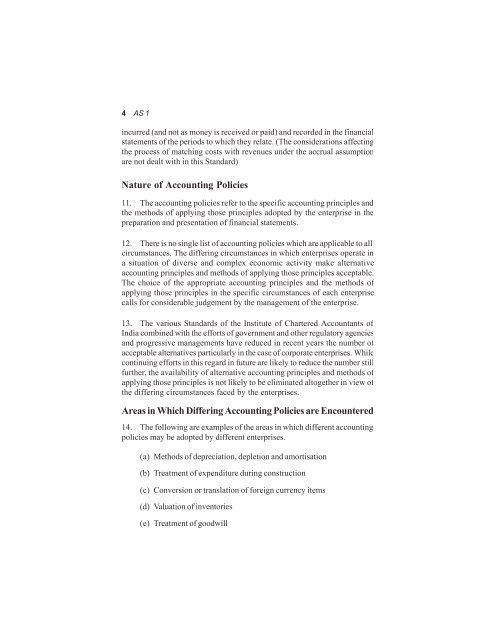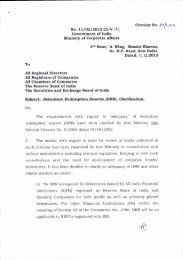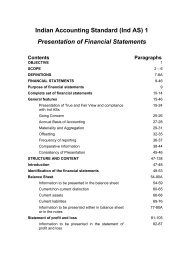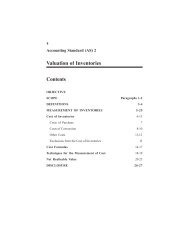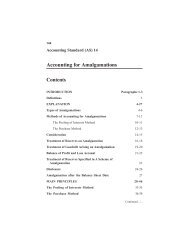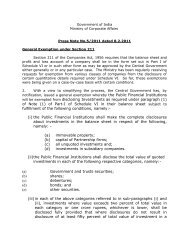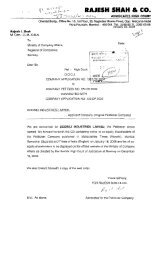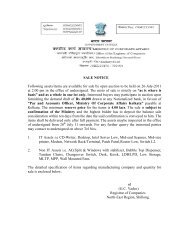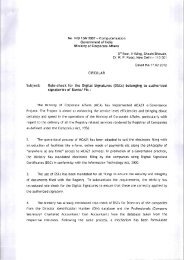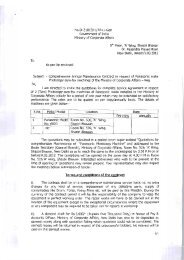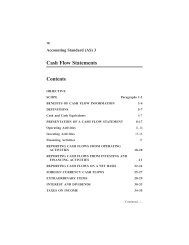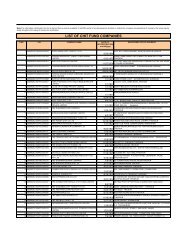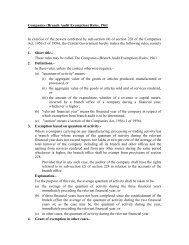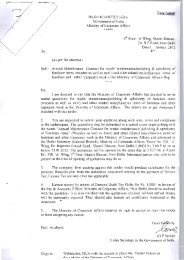(AS) 1 Disclosure of Accounting Policies - Ministry of Corporate Affairs
(AS) 1 Disclosure of Accounting Policies - Ministry of Corporate Affairs
(AS) 1 Disclosure of Accounting Policies - Ministry of Corporate Affairs
You also want an ePaper? Increase the reach of your titles
YUMPU automatically turns print PDFs into web optimized ePapers that Google loves.
4 <strong>AS</strong> 1<br />
incurred (and not as money is received or paid) and recorded in the financial<br />
statements <strong>of</strong> the periods to which they relate. (The considerations affecting<br />
the process <strong>of</strong> matching costs with revenues under the accrual assumption<br />
are not dealt with in this Standard)<br />
Nature <strong>of</strong> <strong>Accounting</strong> <strong>Policies</strong><br />
11. The accounting policies refer to the specific accounting principles and<br />
the methods <strong>of</strong> applying those principles adopted by the enterprise in the<br />
preparation and presentation <strong>of</strong> financial statements.<br />
12. There is no single list <strong>of</strong> accounting policies which are applicable to all<br />
circumstances. The differing circumstances in which enterprises operate in<br />
a situation <strong>of</strong> diverse and complex economic activity make alternative<br />
accounting principles and methods <strong>of</strong> applying those principles acceptable.<br />
The choice <strong>of</strong> the appropriate accounting principles and the methods <strong>of</strong><br />
applying those principles in the specific circumstances <strong>of</strong> each enterprise<br />
calls for considerable judgement by the management <strong>of</strong> the enterprise.<br />
13. The various Standards <strong>of</strong> the Institute <strong>of</strong> Chartered Accountants <strong>of</strong><br />
India combined with the efforts <strong>of</strong> government and other regulatory agencies<br />
and progressive managements have reduced in recent years the number <strong>of</strong><br />
acceptable alternatives particularly in the case <strong>of</strong> corporate enterprises. While<br />
continuing efforts in this regard in future are likely to reduce the number still<br />
further, the availability <strong>of</strong> alternative accounting principles and methods <strong>of</strong><br />
applying those principles is not likely to be eliminated altogether in view <strong>of</strong><br />
the differing circumstances faced by the enterprises.<br />
Areas in Which Differing <strong>Accounting</strong> <strong>Policies</strong> are Encountered<br />
14. The following are examples <strong>of</strong> the areas in which different accounting<br />
policies may be adopted by different enterprises.<br />
(a) Methods <strong>of</strong> depreciation, depletion and amortisation<br />
(b) Treatment <strong>of</strong> expenditure during construction<br />
(c) Conversion or translation <strong>of</strong> foreign currency items<br />
(d) Valuation <strong>of</strong> inventories<br />
(e) Treatment <strong>of</strong> goodwill


